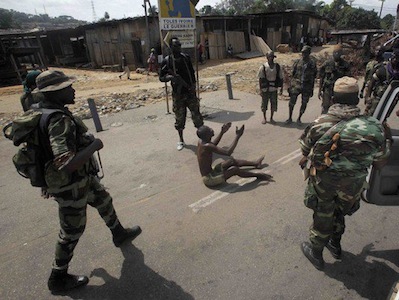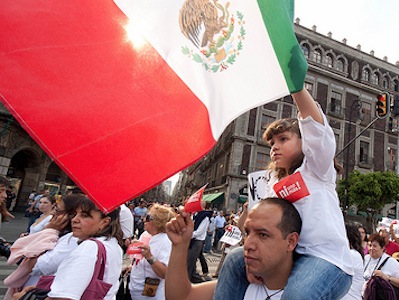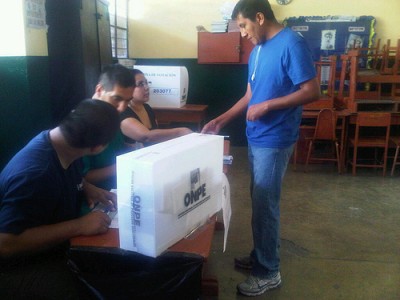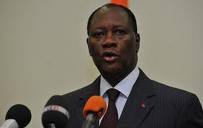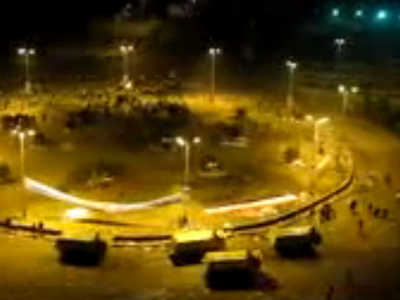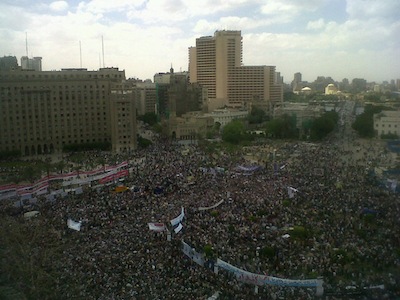Stories about Human Rights from April, 2011
Cuba: True Democracy
“If young gang members are sentenced to several years behind the bars for robbing a gas station, the same should apply to bankers, managers, financiers, or even presidents of countries if they engage in corruption”: Iván García fears that “democracy is stammering.”
Côte d'Ivoire: Brutality Continues After Gbagbo's Capture
Since their capture on April 11, 2011, pictures of former Côte d'Ivoire President Laurent Gbagbo, his wife, and their entourage have spread on the web and via international newspapers. One picture in particular provoked a strong reaction: an image of Simone Gbagbo being humiliated by her captors.
North Korea: One American Has Been Detained
North Korea confirmed that it has detained an American man. The United States is urging North Korea to release the man on humanitarian grounds. North Korean Economy Watch blog summarized the latest detention cases.
Mexico: Netizens Deploy the “Failed State” Meme
The idea of Mexico as an actual or potential "failed state," pending since its introduction into public discourse in 2008 following news of a report to this effect by the U.S. Joint Forces, has become a popular meme in its own right on the Internet, as bloggers and other netizens deploy the parlance (signaled on Twitter by the ubiquitous hashtag #estadofallido) for their own critical purposes.
Cuba: Targeting Bloggers?
“The personal freedoms of members of the alternative blogosphere are at risk after the official media publicly accused them of being mercenaries”: Laritza Diversent says that referring to bloggers in this way is “completely groundless”, adding: “It is very possible that, by using the State-controlled media, they are preparing an...
Mozambique: Police Attack Protesting Workers
On the 6th of April, police officers from the Rapid Intervention Force (FIR) used violence to put an end to a protest by the employees of the private security firm G4S. On Facebook, cybernauts showed their indignation with such acts of brutality and questioned on the role of police, justice and human rights.
Peru: Reactions Following the First 2011 Electoral Round
After celebrating the elections in Peru, the results indicate a second round between Ollanta Humala and Keiko Fujimori. Bloggers, candidates, and analysts coincide that the result is principally a "vote of punishment" for the economic policies managed by governments in recent years, that have fomented growth and created a new economic prosperity that does not reach everyone.
Cuba: No Questions Asked
“We have to see Fidel Castro as a piece of living history. A stream of bright ideas…the only comandante. The man who never makes mistakes”: Iván García would like to comment.
Egypt: “We are all Maikel Nabil”
The sentencing of blogger Maikel Nabil to 3 years in prison by a military tribunal in closed session for criticizing the army, two days after a bloody crackdown in Tahrir Square, has Egyptian netizens in an uproar, exercising their newfound free speech rights while seeing them being threatened
Cuba: Threat of the Internet
“In Cuba, access to the internet is restricted and very expensive for citizens, but it is also controlled by state institutions”: Laritza Diversent explains.
Russia: Bloggers Debate Military Operation in Libya
The situation in Libya, especially after the start of military operations by Western countries, has become one of the main topics of discussion in the Russian blogosphere. Marina Litvinovich analyzes the reactions and trends surrounding the issue.
Honduras: US State Department's Human Rights Report
Greg Weeks in Two Weeks Notice comments on the US State Department's Human Rights Report on Honduras: “On the one hand, it has 47 single-spaced pages detailing a wide variety of serious abuses–acknowledgment of these abuses is commendable. On the other, the report dances around assigning specific responsibility to anyone...
Kenya: Netizens React to ICC Charges Against Six Kenyans
On 7 and 8 April, 2011, the International Criminal Court (ICC) confirmed charges against six prominent Kenyan individuals whom the ICC prosecutor Louis Moreno Ocampo believes bear the most responsibility for the post election violence that rocked the country in 2008.
Iran:Iranian exiles killed in Iraq
Iraqi forces attacked Iranian opposition group, Mujahedin of People, in Iraq's Camp Ashraf killing at least 25 people. Here is a film shows Camp Ashraf under attack.
Hungary: “Refusing to Face the Past”
Hungarian Spectrum writes about the revisions of history initiated by Hungarian politicians, including the history of the Holocaust in Hungary: “The new constitution will state that whatever happened between March 19, 1944 and May 2, 1990 simply doesn't exist. Or, more precisely, it existed but entirely independently from the Hungarians....
Bosnia & Herzegovina: “Remembering War in Sarajevo”
Café Turco writes about the April 6 commemoration of the liberation of Sarajevo in WWII and the beginning of the siege of the city in 1992.
Angola: Monitoring the Use of the Internet
A “storm of criticism” has been raised in Angola following the discussion of a draft law on computer crime, says Mukelani Dimba, expert on right to information in Africa. Dozens of cybernauts have commented an interview [pt] where Mihaela Webba, lawyer and professor, clarifies the scope of the bill and...
Ivory Coast: Ivorians on Twitter React to the Address by Alassane Ouattara
The Republican Forces of Ivory Coast stopped at the doors of the presidential palace still occupied by Laurent Gbagbo, who is taking refuge in a bunker accompanied by family members. Alassane Ouattara addressed his fellow citizens. Ivorians on Twitter have commented on the address.
Egypt: Crackdown on Tahrir After “Cleansing Friday”
Tahrir Square was the scene of a brutal crackdown on the night of the biggest protest since Mubarak's ousting, which seemed to have revived the spirit of the revolution, harking back to some of the darkest Friday nights of the country's 18 days of protest. Asteris Masouras brings us the latest from netizens in the second of a two-part series.
Egypt: “Cleansing Friday” in Tahrir Square Reboots the Revolution
For the tenth week in a row since the Egyptian revolution began in January 25, 2011, Cairo's people took to downtown Tahrir square in large numbers to peacefully demonstrate against corrupt officials remaining in power and to show solidarity to Arab uprisings. Asteris Masouras takes us to the heart of Tahrir in the first of a two-part series.
Nicaragua: Experiences of Online Citizen Participation
The web in Nicaragua is increasingly active, with projects for social events or small businesses finding niche markets to serve online. In order to learn a little more about these practices, Rodrigo Peñalba presents five videos considering the topics of tourism and the web, the social integration of migrants and people with limited resources, gender and sexual diversity and initiatives from the free software community in Nicaragua.

